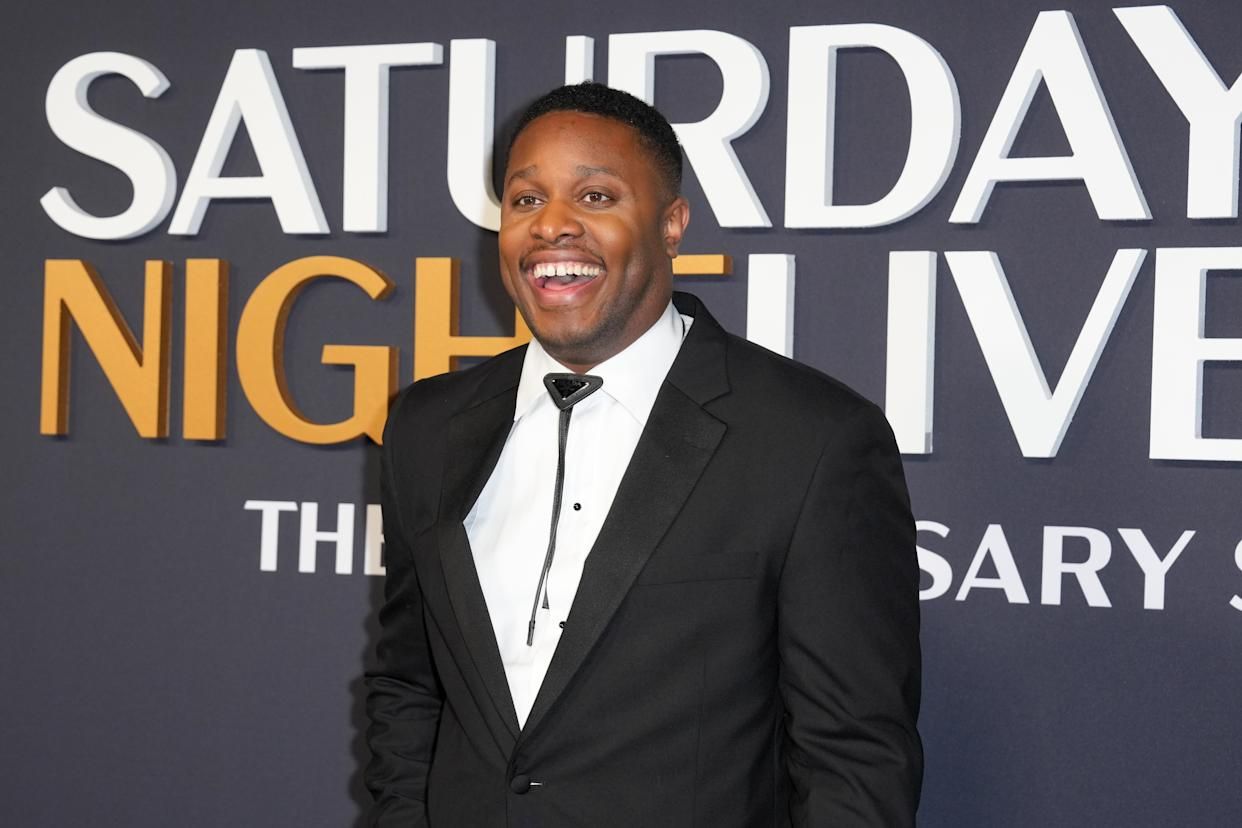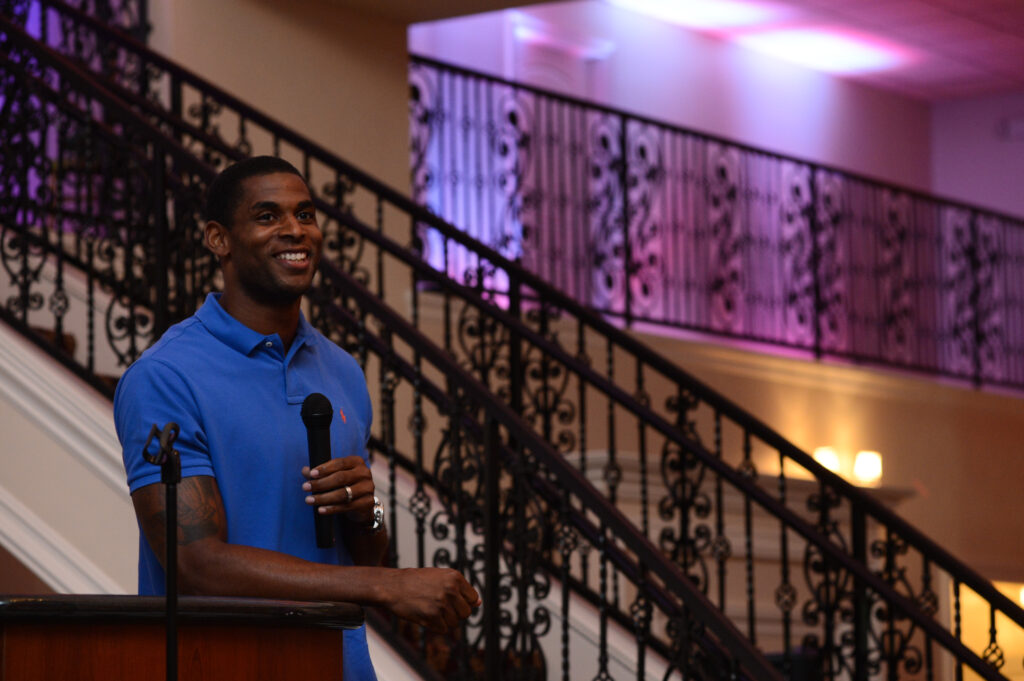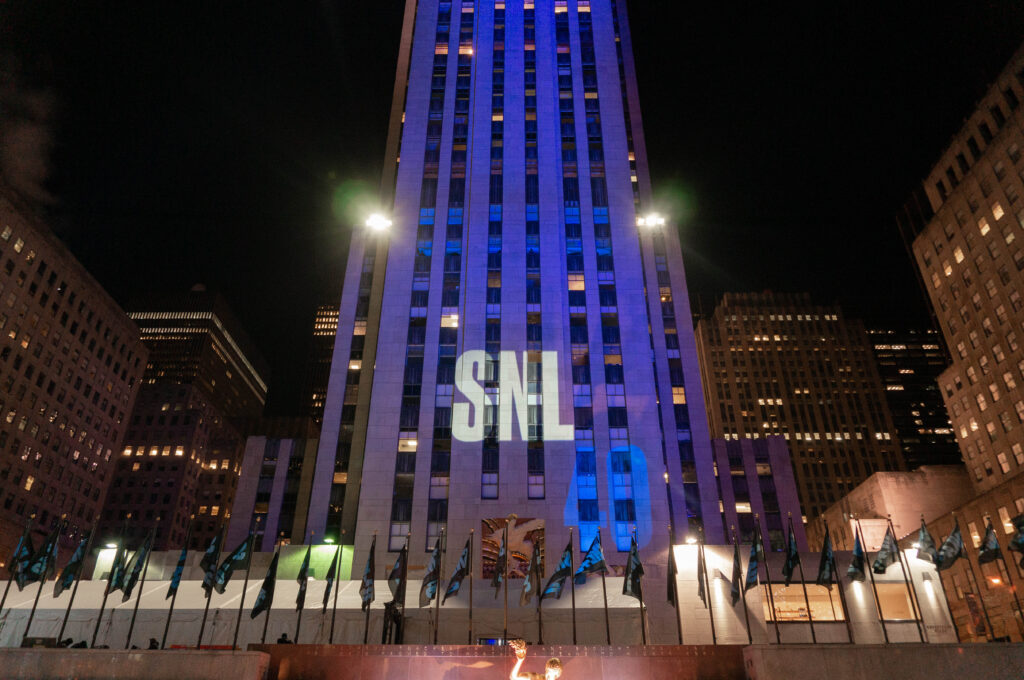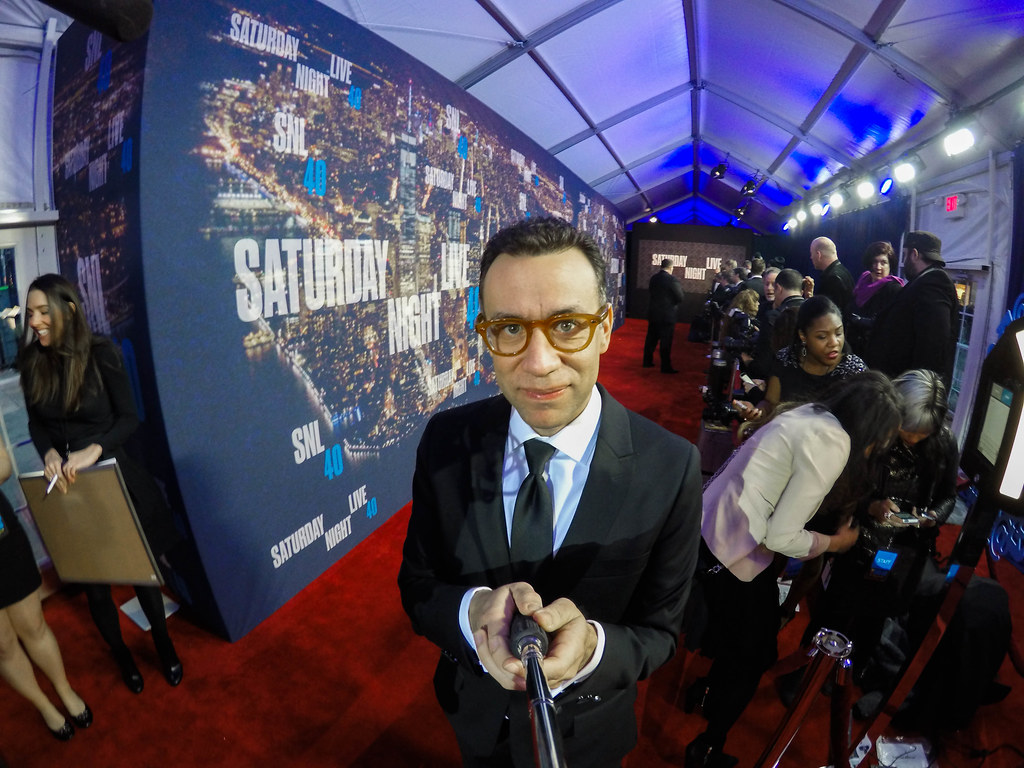
The landscape of live sketch comedy, particularly the venerable institution of “Saturday Night Live,” is perpetually in flux, a dynamic that often sees familiar faces depart as new talent emerges. This cycle of renewal, while essential to the show’s longevity, frequently brings with it moments of introspection and candid revelation from those who have navigated its unique pressures. Recently, this tradition continued with the surprising announcement from comedian Devon Walker.
Walker, a notable presence on the NBC sketch comedy series for three seasons, publicly disclosed his exit, initiating a conversation that extends beyond a simple cast change. His announcement arrived just days after creator Lorne Michaels had openly hinted at significant cast shake-ups for the upcoming Season 51, lending an added layer of intrigue to Walker’s departure. The timing has prompted a closer look at the experiences of those working within the demanding confines of 30 Rockefeller Plaza.
Walker’s communication of his exit was not merely a formal statement but a deeply personal reflection shared via Instagram. It provided a rare glimpse into the complex emotional and professional tapestry of working on one of television’s most iconic shows. His words have resonated with many, offering a candid perspective on the challenges and camaraderie that define a career in the fast-paced, high-stakes world of live comedy.

1. **Devon Walker’s Public Announcement: A Candid Departure**Devon Walker, 34, initiated a significant conversation on Monday night by announcing his exit from “Saturday Night Live” after a three-season run. His disclosure came through an Instagram post, which he tellingly captioned, “Me and baby broke up ❤️.” This highly personal framing immediately set the tone for a reflection that transcended a standard professional communiqué, inviting followers into a more intimate understanding of his decision.
His post included a screenshot of a TextEdit document, provocatively titled “wait..did he quit or did he get fired?” This choice of title underscored the inherent ambiguity and speculation that often surrounds high-profile departures from major institutions like SNL. It also highlighted Walker’s self-awareness of the public’s immediate questions and his willingness to address them, albeit indirectly, through a narrative of mixed feelings.
The announcement arrived on Instagram on a Monday night, specifically August 25. This timing was particularly notable, occurring just days after Lorne Michaels, the show’s creator, had made public remarks regarding an impending cast shake-up for Season 51. Walker’s departure, therefore, became the first tangible manifestation of Michaels’ hints, drawing immediate attention and cementing its place as a pivotal moment in the lead-up to the new season.
Adding to the raw transparency of his announcement, Walker included a screenshot of a text message simply stating, “I’m out,” accompanied by a celebratory emoji. This concise, informal declaration provided a stark visual counterpoint to the more verbose reflection, conveying a sense of relief and finality. It reinforced the personal nature of his decision, presenting it not just as a career move but as a personal turning point.
The public nature of such an announcement on Instagram allows for direct interaction with fans and colleagues, offering a platform for genuine expression. Walker’s choice to use this medium, and his specific phrasing, offered a level of insight into the human experience behind the headlines. It opened a window into the professional and emotional journey that led him to conclude his time on the iconic sketch comedy show.
Read more about: From the Stage to the Backstage Drama: What Really Happened to Devon Walker at SNL

2. **The Metaphor of “Little Marriages”: Walker’s View on Industry Careers**In his contemplative Instagram post, Devon Walker offered a striking analogy to describe the nature of employment within the entertainment industry. He wrote, “To me, jobs in this industry feel like a bunch of little marriages.” This metaphor served to articulate a profound perspective on the transient and often deeply personal connections individuals form with their professional roles, particularly in creative fields.
Walker elaborated on this concept, stating, “Some of em last for a long time if we’re lucky, but most of them are fleeting. Permanent until they’re not.” This observation speaks to the inherent impermanence and unpredictable duration of many creative endeavors. It acknowledges the dream of long-term stability while realistically recognizing that many opportunities are by their very nature temporary, concluding when least expected.
He further added, “That’s the deal. You know what it is … when you sign up.” This particular phrase suggests an understanding of the unspoken contract that performers enter into when joining high-profile, fast-paced productions like “Saturday Night Live.” It implies an awareness from the outset that such roles, however coveted, may not be lifelong commitments and that transitions are an expected part of the journey.
This framework of “little marriages” also provides a lens through which to view the intense, often intimate, working relationships that develop behind the scenes of a show like SNL. Cast members and writers spend countless hours together, collaborating under immense pressure, forging bonds akin to those found in close personal relationships. The dissolution of such a “marriage,” therefore, carries emotional weight beyond mere employment termination.
Walker’s reflection underscores a broader truth about the entertainment industry: careers are often a series of interconnected, yet distinct, chapters. Each “marriage” brings new experiences, new partnerships, and new lessons, eventually leading to a natural conclusion that paves the way for the next chapter. His analogy offers a sophisticated and relatable way to understand the ebb and flow of professional life in a highly dynamic sector.

3. **The “Toxic” and “Dysfunctional” Environment: A Candid Assessment**Beyond the metaphorical framing of industry jobs, Devon Walker’s Instagram announcement contained highly candid remarks about the specific nature of his experience at “Saturday Night Live.” He openly acknowledged that his three years with the show were a blend of highs and lows, stating, “Me and the show did three years together, and sometimes it was really cool. Sometimes it was toxic as hell.” This direct admission painted a nuanced picture of the workplace, moving beyond simplistic narratives of success.
The use of the term “toxic as hell” is particularly potent, suggesting periods of significant stress, unhealthy dynamics, or challenging interpersonal interactions. Such frankness from a departing cast member is relatively uncommon and provides valuable, if unsettling, insight into the demanding environment of a show that operates on a weekly deadline. It implies that the creative energy and comedic output come at a substantial personal cost.
Despite these challenges, Walker emphasized a resilience and a collective effort to navigate the difficulties. He wrote, “But we … made the most of what it was, even amidst all of the dysfunction. We made a f–ked up lil family.” This statement highlights a common phenomenon in high-pressure, collaborative environments: the formation of strong bonds among individuals who endure shared hardships. The description of a “f–ked up lil family” perfectly captures the complex mix of frustration and affection that can exist within such a unit.
The acknowledgment of “dysfunction” suggests systemic issues that may contribute to the “toxic” elements. These could range from intense competition for airtime to demanding creative processes, long hours, and the constant scrutiny of public and critical opinion. Walker’s words, while personal, resonate with anecdotal accounts often associated with the demanding production schedule and creative intensity of SNL.
His transparency provides a rare, unfiltered perspective that helps to demystify the inner workings of a show often viewed through a glamorous lens. It reminds audiences that behind the laughter and celebrity, there are human experiences marked by struggle and perseverance. Walker’s willingness to share this aspect of his tenure offers a more complete, if at times uncomfortable, understanding of his time at 30 Rock.

4. **Camaraderie Amidst Challenges: Connections with Colleagues**Even amidst the candid discussion of “toxic” periods and “dysfunction,” Devon Walker made sure to emphasize the profound positive impact of his relationships with specific colleagues. He articulated a deep sense of gratitude, stating, “More than anything, I’m just really happy I got to do it with Gary and Alex.” This acknowledgment underscores the critical role that personal connections play in mitigating the challenges of a demanding professional environment.
The “Gary” and “Alex” Walker refers to are former “SNL” writers Gary Richardson and Alex English. These individuals were not merely co-workers but close collaborators, with whom Walker ran the DAD comedy show at New York City’s Jane Hotel. This shared history outside of SNL speaks to a deeper bond and a foundational comedic partnership that predated their time on the NBC show.
Walker recounted their collective journey with a sense of wonder and pride: “N—– really went from running a bar show to working together at 30 rock! It’s a beautiful thing.” This reflection highlights the remarkable trajectory of their careers, from humble beginnings in the New York comedy scene to the prestigious stages of “Saturday Night Live.” It celebrates a shared dream realized and the enduring power of friendship in achieving professional milestones.
Alex English, in particular, was also mentioned in the context as having been “relieved” of his duties on the show in August of the previous year. This detail adds a layer of shared experience and empathy to Walker’s sentiments, suggesting that these friendships were forged through mutual understanding and support, even through the show’s often unpredictable personnel changes. The bond became a source of stability within a volatile industry.
These relationships, therefore, represent a significant positive aspect of Walker’s time at SNL, illustrating that even in a highly competitive and challenging environment, genuine human connections can flourish. They provide a testament to the fact that beyond the public persona and the sketches, a community forms, offering support and a sense of belonging that can make even the most “grueling” jobs bearable.

5. **Future Endeavors Post-SNL: Japan and Prestige Drama**As Devon Walker concluded his departure announcement, he offered a glimpse into his ambitious plans for the future, signaling a clear intention to pivot towards new artistic avenues. He declared, “Anyway, I’m bout to go to Japan.” This immediate post-SNL venture suggests a desire for personal exploration and a break from the intensive schedule that defined his recent professional life. Travel can often be a means of regeneration and inspiration for creatives.
Beyond immediate travel, Walker articulated a specific long-term career goal: “When I get back I’m tryna be in a prestige drama.” This statement marks a deliberate shift from the sketch comedy format of “Saturday Night Live” to a genre known for its depth, complex character development, and critical acclaim. It indicates an ambition to showcase a different range of his acting capabilities, moving into more serious and nuanced roles.
He even specified an ideal collaborator for this next phase, stating, “Ideally something with Julianne Moore.” This mention is not merely a name-drop but a clear indication of the caliber of projects and talent he aspires to work with. Julianne Moore is renowned for her work in acclaimed dramas, symbolizing the type of sophisticated and artistically respected productions Walker now aims to join.
Further solidifying the positive outlook on his departure, Walker later clarified on his Instagram story that the exit was “good news” and that it was simply time to “do something different.” He explicitly requested, “Please don’t be hitting me with the ‘im so sorry’ we not on that at ALL.” This reinforces his forward-looking mindset and his enthusiasm for the opportunities that lie ahead, rather than dwelling on the past.
His concluding remarks in the initial post, “Hope y’all staying hydrated and getting some money today,” offered a lighthearted sign-off, typical of his comedic style, while also subtly reflecting a practical, grounded perspective. These future-oriented statements reveal an artist who is not only ready for the next chapter but has a clear vision for its direction, eager to embrace new challenges and expand his creative repertoire.

6. **A Look Back at Walker’s Contributions: Tenure and Iconic Portrayals**Devon Walker’s three seasons on “Saturday Night Live” marked a significant period of growth and contribution to the show’s comedic tapestry. His journey began in 2022 when he joined SNL as a featured player during its 48th season, alongside fellow newcomers Michael Longfellow, Marcello Hernandez, and Molly Kearney. This initial role is often a proving ground for new talent, where performers develop their characters and hone their comedic voice for a national audience.
His talent and consistent performances quickly earned him a promotion to the main cast in 2024. This elevation signifies a recognition of his ability to consistently deliver memorable characters and integrate effectively into the show’s ensemble. Becoming a main cast member is a crucial milestone, granting greater visibility and opportunities for recurring roles and segment participation.
Walker became a recognizable face, frequently appearing on the popular “Weekend Update” segment, a coveted spot that allows cast members to showcase their comedic timing and character work through commentary and guest appearances. Sharing the segment alongside established anchors Colin Jost and Michael Che, he carved out a niche for himself, often bringing a distinct energy and perspective to the show’s satirical news desk.
During his tenure, Walker was particularly popular for his portrayals of several real-life A-listers and public figures. Among his most notable impersonations were those of sports commentator and television personality Michael Strahan, political commentator Van Jones, and, significantly, New York City Mayor Eric Adams. His ability to capture the essence and mannerisms of these prominent individuals resonated with audiences, solidifying his role as a versatile impressionist.
These portrayals not only demonstrated his comedic range but also contributed to the show’s ongoing commentary on contemporary culture and politics. His impersonation of Mayor Eric Adams, in particular, connected SNL directly to local New York City politics, a traditional source of humor for the show. Walker’s presence, from a featured player to a main cast member, underscored his valuable contribution to the enduring legacy of “Saturday Night Live” during his impactful three-year run.

7. **Lorne Michaels’ Strategic Comments on Upcoming Shake-Ups**Devon Walker’s announcement of his departure from “Saturday Night Live” arrived in the immediate aftermath of significant remarks from Lorne Michaels, the show’s venerable creator. Days before Walker’s public statement, Michaels had engaged in an interview with Puck News, where the topic of impending cast changes for the upcoming Season 51 was directly addressed. This timing injected an additional layer of context into Walker’s exit, suggesting it might be the initial manifestation of a broader, pre-planned recalibration of the show’s talent roster.
During the interview, Michaels was explicitly asked whether he intended to “shake things up” with the new cast. His unequivocal response, a simple but firm “yes,” signaled a deliberate strategy to refresh the ensemble. He further articulated his perspective, stating, “Yeah, for sure,” when discussing the perceived “pressure to reinvent this season.” This acknowledgement from the executive producer underscored a proactive approach to maintaining the show’s dynamism and relevance, indicating that the creative leadership was actively considering significant alterations to the cast.
Michaels provided a timeline for these anticipated changes, noting that further announcements would be made “in a week or so,” which aligned with the period leading up to the new season’s preparations. Amidst this broader indication of change, he did offer one specific confirmation: James Austin Johnson, known for his nuanced impersonations, would return to continue portraying President Donald Trump. This detail offered a glimpse into the strategic choices being made, balancing the need for fresh talent with the retention of key performers for prominent political satire, particularly in an election cycle.

8. **The Rationale Behind Season 50’s Stability**Michaels’ commentary also provided crucial insight into why Season 50, despite being a landmark anniversary, had largely maintained a consistent cast. He explained that the stability of the ensemble during the preceding season was a deliberate strategic choice, distinct from the changes now being pursued. This decision was rooted in the desire to prioritize the monumental 50th-anniversary celebration, which featured a primetime special in February.
His primary objective for Season 50 was to foster an environment conducive to the return of esteemed “SNL” alums, allowing them to contribute meaningfully to the celebratory events. Michaels explicitly stated, “I wanted people coming back and being part of [the 50th season].” This strategy saw the return of prominent former cast members such as Kate McKinnon, Kristen Wiig, and Maya Rudolph, underscoring a focus on historical continuity and collective celebration rather than disruptive personnel shifts.
Furthermore, Michaels emphasized his intent to avoid “disruptions or anything that was going to take the focus off [the 50th season].” This commitment to preserving the integrity of the anniversary year meant deferring significant cast alterations. He also added a concise but weighty reason for maintaining the status quo, remarking, “And we had an election.” The convergence of a major anniversary and a politically charged period evidently contributed to the decision to prioritize stability over extensive change, ensuring the show could navigate these significant events with its established ensemble.

9. **The Enduring Cycle of Reinvention at SNL**Lorne Michaels’ remarks extended beyond immediate cast changes, offering a broader perspective on the perpetual state of evolution inherent to “Saturday Night Live.” He revealed that discussions and conceptualizations regarding how to reinvent the series are not episodic but rather an ongoing process, stating they are “almost always taking place behind the scenes.” This underscores that the show’s dynamic nature is not merely reactive but is built upon continuous strategic foresight and creative planning.
Michaels provided a glimpse into the collaborative yet hierarchical nature of these decisions, noting that “more people are involved in the choices and in the decisions.” This suggests a robust internal discourse, with various creative voices contributing to the direction of the show. He acknowledged, “There’s a lot of people in that room with a lot of opinions.” However, he reaffirmed his ultimate authority, stating, “I make the final decision, obviously. But it’s not as if people don’t let me know how strongly they feel.” This structure allows for diverse input while maintaining a singular vision at the helm.
This continuous process of evaluation and reinvention is fundamental to SNL’s remarkable longevity and cultural impact. The cycle of cast departures and the introduction of new talent, which has characterized the show for decades, is not merely a consequence of expiring contracts or individual career aspirations. Instead, it is an integral part of a deliberate operational philosophy that ensures the program remains fresh, relevant, and capable of adapting to changing comedic landscapes and audience expectations. It is a testament to the organizational resilience that allows an institution to remain vibrant through constant renewal.
Read more about: Buckle Up, Fam! Everything You NEED to Know About Fast X – From Jaw-Dropping Stunts to Shocking Twists!

10. **Other Notable Departures: Celeste Yim**While Devon Walker’s exit marked the first cast member departure, it was not an isolated event in the pre-Season 51 personnel shifts. The broader context of changes at “Saturday Night Live” also encompassed significant movements behind the scenes, notably the departure of writer Celeste Yim. Yim, a prominent creative voice, announced their exit from the “grueling” sketch comedy show via a lengthy Instagram message posted on Sunday night, predating Walker’s public statement by a day.
Yim’s announcement provided a poignant and revealing account of their five seasons with the show. At 29, Yim reflected on being hired by Lorne Michaels over the phone at the age of 23, acknowledging that “the job literally made all of my dreams come true.” This sentiment captured the immense opportunity and fulfillment that working at such an iconic institution can offer, particularly for young talent entering the demanding entertainment industry.
However, Yym’s reflection was also candid about the profound challenges inherent in the role. They described the work as “grueling,” explicitly mentioning that “I slept in my office every week.” This detail offered a stark illustration of the intense pressure and relentless schedule that characterizes the production of a weekly live sketch comedy show. They further illuminated the complex interpersonal dynamics, noting, “BUT I got yelled at by random famous men BUT some famous girls too BUT I loved it and I laughed every day and it’s where I grew up.”
Celeste Yim’s departure holds particular significance as they were the show’s first writer to identify as nonbinary and the first out trans writer. In concluding their message, Yim stated, “I always felt honored to be working within the long tradition of queer writing at the show,” and expressed a sense of powerlessness to protect trans people globally, affirming that “writing connects us and makes us permanent, so it’s what I will continue to do.” This dedication to their craft and identity, even amidst a demanding exit, highlighted the personal and professional impact of their time at SNL and their ongoing commitment to their artistic voice.

11. **The Broader Pattern of Cast and Crew Turnover**Devon Walker’s departure, while notable, is positioned within a well-established pattern of personnel flux that defines the operational rhythm of “Saturday Night Live.” Michaels himself had hinted at these broader changes, and indeed, Walker was not the sole individual to announce an exit in the lead-up to the new season. This annual turnover is a consistent feature of the program, designed to inject fresh perspectives and prevent stagnation.
The context reveals that other cast members had also departed in the preceding year, between Season 49 and Season 50. Molly Kearney, Punkie Johnson, and Chloe Troast were among those who left in 2024. Notably, Chloe Troast publicly stated that her exit “wasn’t her decision” and that she “was not asked back,” offering a glimpse into the often unsentimental business decisions that underpin these cast adjustments. Simultaneously, the show introduced new talent, with Jane Wickline, Ashley Padilla, and Emil Wakim joining the team, illustrating the constant influx of new blood.
This continuous cycle of departures and additions underscores SNL’s strategic approach to maintaining a vibrant and evolving ensemble. Even the Season 50 finale, aired on May 17, featured no explicit send-off for any specific cast member, yet it humorously acknowledged the rampant speculation about who might be leaving. Host Scarlett Johansson performed a monologue song that jokingly suggested Sarah Sherman’s departure, and “Weekend Update” lightheartedly addressed rumors of Colin Jost potentially leaving his anchor role to succeed Lorne Michaels.
The turnover extends beyond performers; as noted, writers Celeste Yim and Rosebud Baker also announced their departures. Earlier, in August of the previous year, Alex English, a close colleague of Walker’s, was “relieved” of his duties. These multiple instances of exits, encompassing both on-screen talent and behind-the-scenes creatives, confirm that the shifting landscape is comprehensive, affecting various facets of the show’s production and reinforcing the idea of “little marriages” that are permanent until they are not.
Read more about: The Integrity Under Fire: Why NFL Fans Demand Answers as Officiating Controversies Mount and the League Fights Back

12. **SNL’s Enduring Legacy Amidst Flux**The narrative surrounding Devon Walker’s departure, Lorne Michaels’ strategic pronouncements, and the broader pattern of cast and crew changes collectively underscore a fundamental truth about “Saturday Night Live”: its enduring success is inextricably linked to its perpetual state of flux. The institution, now preparing for its 51st season, has consistently demonstrated an ability to absorb individual departures and integrate new talent, transforming potential disruptions into opportunities for reinvention.
This “cycle of renewal” is not merely incidental but is an essential mechanism for the show’s longevity and cultural relevance. By regularly refreshing its ensemble and creative team, SNL maintains its capacity to reflect contemporary humor, satirize current events, and connect with new generations of audiences. The willingness to embrace change, even when it involves parting with beloved figures, is a cornerstone of its sustained vitality and adaptation to evolving comedic sensibilities.
As “Saturday Night Live” anticipates its Season 51 premiere on October 4, the recent personnel shifts serve as a powerful reminder of its unique operational model. Each departure closes a chapter, while each new cast member and writer represents the opening of another, ensuring that the show remains a dynamic and influential force in television comedy. This constant evolution, orchestrated by Michaels and embraced by its participants, allows SNL to maintain its status as a cultural touchstone, continually reinventing itself while preserving its core identity as a mirror to the American zeitgeist.
The continuous evolution within “Saturday Night Live,” as highlighted by Devon Walker’s candid exit and Lorne Michaels’ strategic planning, reveals a unique and remarkably resilient organizational model. Each cast and crew change, rather than signaling decline, reaffirms the show’s commitment to an ongoing process of renewal and adaptation. This dynamic ebb and flow of talent is not a weakness but a fundamental strength, allowing SNL to remain a vibrant, relevant, and indispensable voice in American comedy, consistently drawing new comedic energy and perspectives to its iconic stage. It is a testament to the foresight that recognizes that true permanence in the unpredictable landscape of live television is often found in the willingness to perpetually embrace change, ensuring that the laughter and commentary continue for decades to come.


